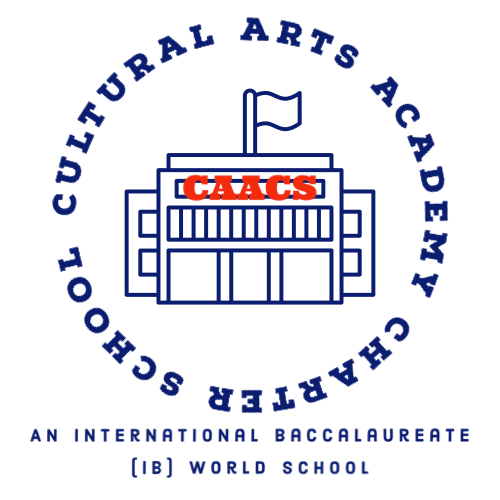Inquiry in Fifth Grade
Our fifth graders learn through the lens of six thematic inquiry units throughout their school year.
Inquiry Unit Theme One: How we express ourselves
Central Idea: The remnants of Ancient Civilizations give insight to the foundation of expression today.
Sample Inquiry question asked by scholar: I wonder how the ancient Maya uses sports as a form of expression?
Summative assessment: Scholars write a cited research paper essay and create a project based on a choice board that includes options like poster, 3D model, power point, ancient cook book, and skit. Scholars present their projects to the class.
Key Concepts: Change, Causation, Connection
Subject Focus: Social Studies, Reading, Writing, Dance, Visual Arts
Learner Profile Traits: Inquirers, Knowledgeable, Communicators
ATL Skills: Listening (Communication Skill), Presenting (Communication Skill), Accepting Responsibility (Social Skill), Cooperating (Social Skill), Collecting Data (Research Skill), Organizing Data (Research Skill)
Lines of Inquiry:
- Original people used agriculture to become civilizations.
- Ancient civilizations gave birth to cultural expression.
- Archeology uses science to inform us of our history and ancient ways of life.
- Cultural Expressions vary and evolve over time.
Inquiry Unit Theme Two: Where we are in place and time
Central Idea: People are influenced by the cross culture relationships formed by exploration and exploitation.
Sample Inquiry question asked by scholar: I wonder how the Columbian Exchange can be seen as overall good for the world?
Summative assessment: Scholars write an evidence based argumentative essay about a debatable explorer or related event in history.
Key Concepts: Change, Causation, Perspective
Subject Focus: Social Studies, Reading, Writing, Debate
Learner Profile Traits: Risk-taker, Open-minded, Caring
ATL Skills: Writing (Communication Skill), Dialectical Thought (Thinking Skill) Analysis (Thinking Skill), Collecting Data (Research Skill), Interpreting Data (Research Skill)
Lines of Inquiry:
- The positive and negative results of exploration.
- Human relationships with animals and plants change with discovery and trading.
- There are less diversity of species and less diversity of human culture because of globalization.
Inquiry Unit Theme Three: How the world works
Central Idea: Alternate approaches to energy can address the needs of the world’s growing population.
Sample Inquiry question asked by scholar: I wonder how wind energy is a better form of energy than fossil fuels?
Summative assessment: Scholars write an informational or argumentative essay describing their form of energy and its advantages and disadvantages. Scholars then choose a creative option from a choice board such as a 3D model or poster to be presented to the class.
Key Concepts: Connection, Function, Causation
Subject Focus: Science, Reading, Writing
Learner Profile Traits: Knowledgeable, Inquirer, Communicator
ATL Skills: Synthesis (Thinking Skill), Resolving Conflict (Social Skill), Presenting (Communication Skill), Cooperation (Social Skill)
Lines of Inquiry:
- There are different types of energy and energy transfers.
- Fossil fuels impact our planet.
- An argument can be made for alternative forms of energy.
- Advocacy can shape decisions about environmental policies.
Inquiry Unit Theme Four: Who we are
Central Idea: People have advocated for our rights and responsibilities.
Sample Inquiry question asked by scholar: I wonder how Sojourner Truth advocated for womens' and african americans' rights?
Summative assessment: Scholars will write and perform a monologue that captures the heart of the message of an activist of their choice.
Key Concepts: Change, Function, Responsibility
Subject Focus: Social Studies, Reading, Writing, Drama
Learner Profile Traits: Knowledgeable, Inquirer, Communicator
ATL Skills: Collecting Data, Codes of Behavior, Cooperating, Synthesis
Lines of Inquiry:
- There are people who we recognize as leaders for earning us more rights.
- We have a responsibility to know our rights and those who fought for them.
- Rights and responsibilities develop and change depending on where and what time period you live.
Inquiry Unit Theme Five: How we organize ourselves
Central Idea: Entrepreneurs must research and plan in order to have success with earning money from investors.
Sample Inquiry question asked by scholar: I wonder how I can create a business model that will attract investors?
Summative assessment: Scholars will create a viable business model and advertisement to persuade a board of 4 sharks (deans).
Key Concepts: Connection, Causation, Form
Subject Focus: Math, Reading, Writing
Learner Profile Traits: Thinker, Knowledgeable, Risk Taker
ATL Skills: Research, Presenting, Writing, Organizing Data, Analysis
Lines of Inquiry:
- Economics often drive decision-making.
- Strategies can be used to start a new company.
- Successful companies study consumer trends, supply and demand factors, and take calculated risks to expand or go public.
- The stock market has a structure that allows for stock to be traded for profit.
Inquiry Unit Theme Six: Sharing the planet
Central Idea: Finding peaceful solutions to conflict leads to a better quality of human life.
Sample Inquiry question asked by scholar: TBD
Summative assessment: TBD
Key Concepts: Causation, Perspective, Responsibility
Subject Focus: Social Studies, Reading, Writing
Learner Profile Traits: Thinker, Open-Minded, Caring
ATL Skills: TBD
Lines of Inquiry:
- There are causes that start conflicts.
- Conflicts can be resolved and managed.
- Strategies and structures support people to live and work peacefully together.
